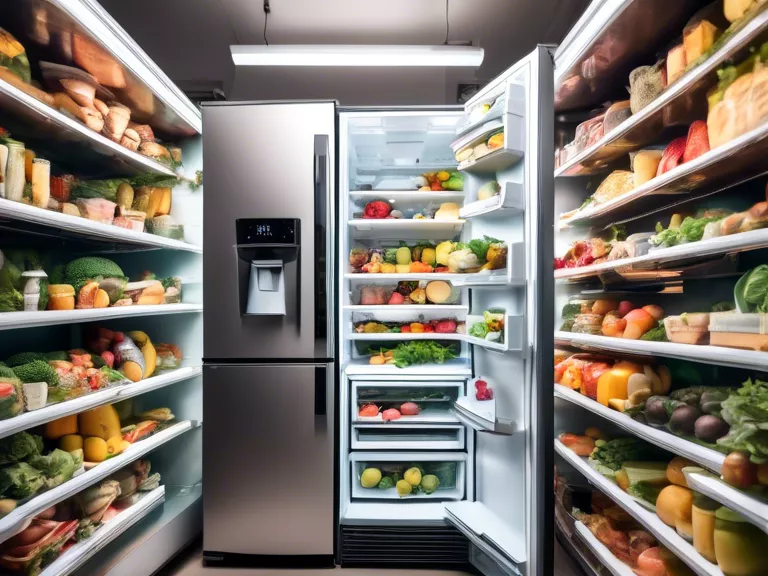
With the advancement of technology, smart refrigerators are now equipped with AI-driven inventory management systems to help reduce food waste. These smart refrigerators are revolutionizing the way we store and manage food by providing real-time information on what items are inside, their expiration dates, and even suggesting recipes based on the available ingredients. This innovative solution not only helps in saving money but also contributes to reducing food waste.
One of the key features of smart refrigerators with AI-driven inventory management is the ability to track the expiration dates of food items. By keeping track of when each item was placed inside the fridge, the system can alert users when items are about to expire. This helps in preventing food from going bad and ultimately being thrown away.
Furthermore, these smart refrigerators can also suggest recipes based on the ingredients available inside. By analyzing the items in the fridge, the AI system can recommend recipes that utilize those ingredients, maximizing the use of the food items and reducing the likelihood of them going to waste. This feature not only helps in reducing food waste but also encourages users to try out new dishes.
Additionally, smart refrigerators with AI-driven inventory management can help in creating shopping lists based on the items that are running low. By monitoring the quantities of items in the fridge, the system can suggest what needs to be replenished, making grocery shopping more efficient and reducing the chances of overstocking or forgetting to buy essential items.
In conclusion, smart refrigerators with AI-driven inventory management systems are playing a crucial role in reducing food waste. By providing real-time information on the contents of the fridge, suggesting recipes, and creating shopping lists, these innovative refrigerators are helping users in making more informed decisions about their food consumption. As technology continues to evolve, we can expect to see more advancements in this area, ultimately leading to a more sustainable and efficient way of managing food storage.



